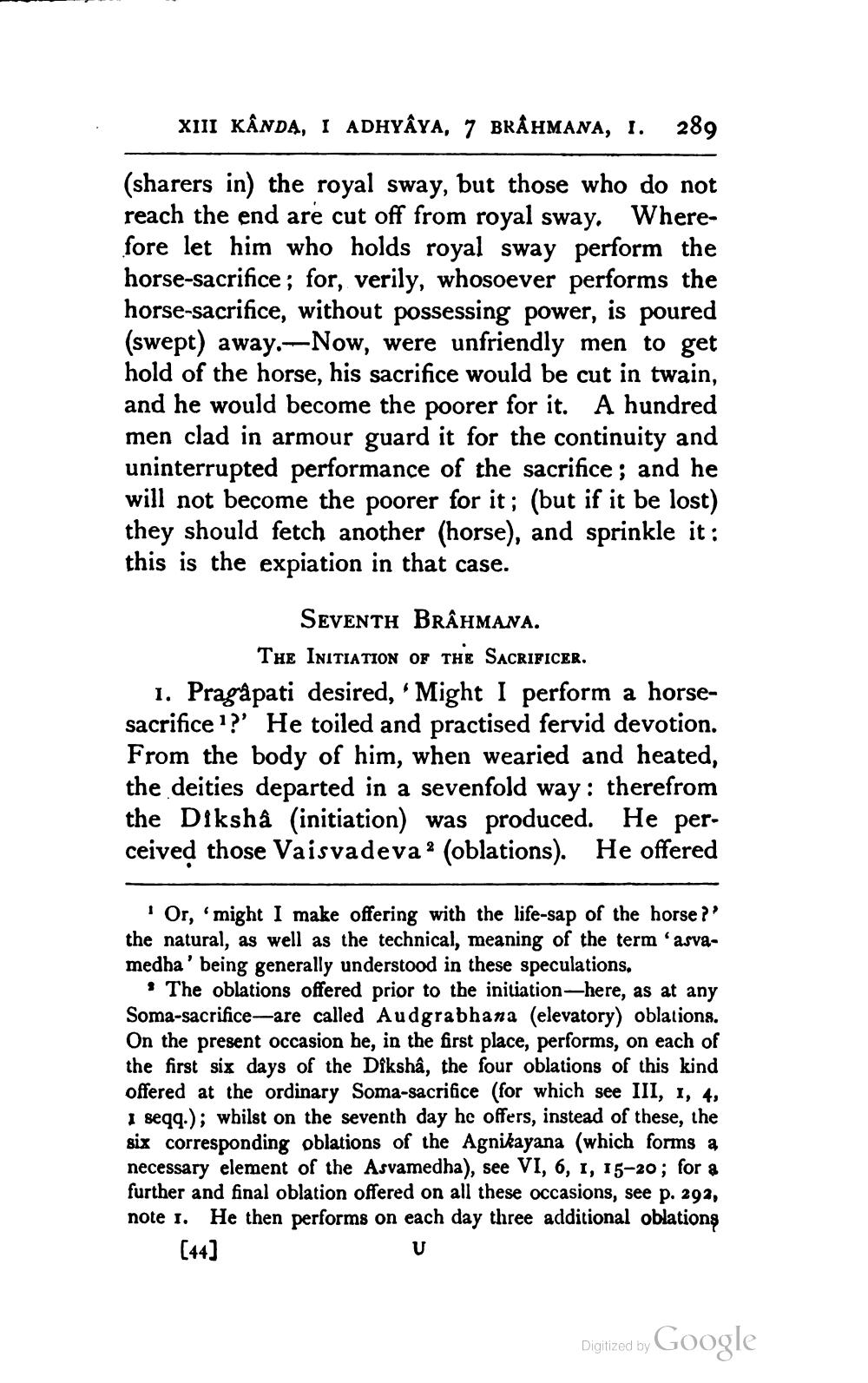________________
XIII KÂNDA, I ADHYÂYA, 7 BRÂHMANA, I.
289
(sharers in) the royal sway, but those who do not reach the end are cut off from royal sway. Wherefore let him who holds royal sway perform the horse-sacrifice; for, verily, whosoever performs the horse-sacrifice, without possessing power, is poured (swept) away.--Now, were unfriendly men to get hold of the horse, his sacrifice would be cut in twain, and he would become the poorer for it. A hundred men clad in armour guard it for the continuity and uninterrupted performance of the sacrifice; and he will not become the poorer for it; (but if it be lost) they should fetch another (horse), and sprinkle it: this is the expiation in that case.
SEVENTH BRAHMANA.
THE INITIATION OF THE SACRIFICER. 1. Pragàpati desired, 'Might I perform a horsesacrifice 1?' He toiled and practised fervid devotion. From the body of him, when wearied and heated, the deities departed in a sevenfold way: therefrom the Dikshå (initiation) was produced. He perceived those Vaisvadeva? (oblations). He offered
· Or, "might I make offering with the life-sap of the horse?' the natural, as well as the technical, meaning of the term 'asvamedha' being generally understood in these speculations,
· The oblations offered prior to the initiation-here, as at any Soma-sacrifice--are called Audgrabhana (elevatory) oblations. On the present occasion he, in the first place, performs, on each of the first six days of the Dikshâ, the four oblations of this kind offered at the ordinary Soma-sacrifice (for which see III, I, 4, I seqq.); whilst on the seventh day he offers, instead of these, the six corresponding oblations of the Agnikayana (which forms a necessary element of the Asvamedha), see VI, 6, 1, 15-20; for a further and final oblation offered on all these occasions, see p. 292, note 1. He then performs on each day three additional oblations
[44]
Digitized by Google




